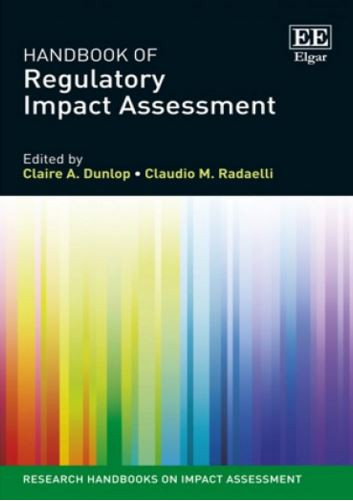-
Resources on Congressional Regulatory Bills
The House of Representatives has passed several bills that could have devastating effects on the federal regulatory process. To help journalists and policymakers understand the potential impact of some bills currently moving through Congress, we recently published a series of fact sheets.
-
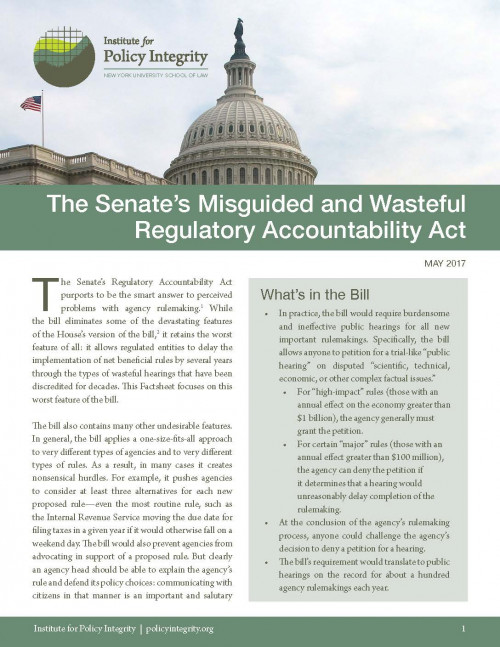
The Senate’s Misguided and Wasteful Regulatory Accountability Act
The Senate’s Regulatory Accountability Act would rewrite notice-and-comment rulemaking procedures and create extraordinarily burdensome hurdles in rule implementation by requiring trial-like public hearings. Our issue brief describes how this change to regulatory reform would give opponents of major public safeguards a valuable tool to delay implementation for years, without any regard to the harm that delay would impose on the health and safety of the American public.
-
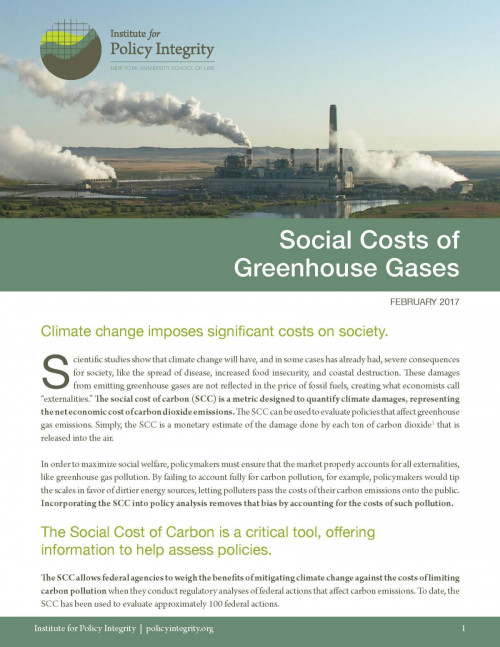
Social Costs of Greenhouse Gases
Scientific studies show that climate change will have, and in some cases has already had, severe consequences for society, like the spread of disease, increased food insecurity, and coastal destruction. The social cost of carbon (SCC) is a metric designed to quantify climate damages, representing the net economic cost of carbon dioxide emissions. Our issue brief on the Social Cost of Carbon details how this metric was developed and how it applies to federal regulatory policy.
-
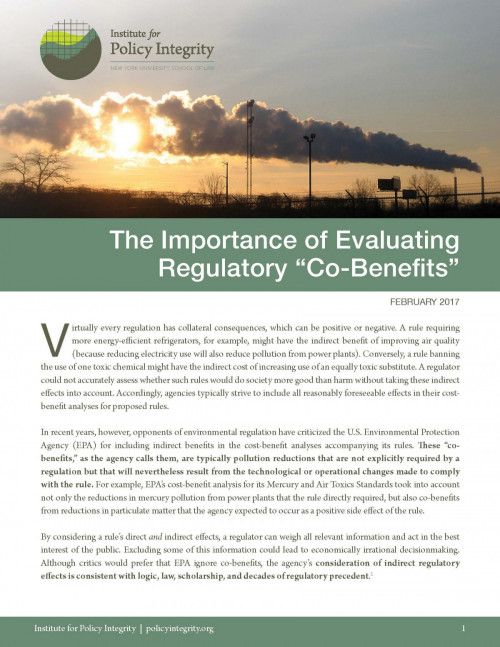
The Importance of Evaluating Regulatory “Co-Benefits”
Our issue brief on Regulatory Co-Benefits analyzes the importance of using unbiased economic analysis to consider all direct and indirect costs and benefits of any environmental safeguard.
-
Public Comments to OIRA on Regulatory Review Guidance
President Trump’s recent Executive Order on reducing regulation directed agencies to identify two existing regulations to repeal when issuing a new regulation, and to offset all incremental costs of new regulations. On February 2, 2017, the Office of Information and Regulatory Affairs (OIRA) released interim guidance on how it plans to implement the Executive Order, and we submitted comments on the guidance.
-
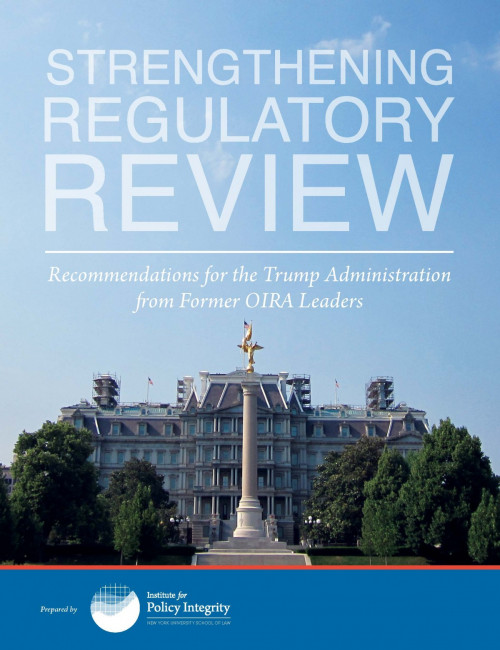
Strengthening Regulatory Review
Recommendations for the Trump Administration from Former OIRA Leaders
This report contains a set of recommendations for the Trump Administration that, if implemented, would strengthen the process of regulatory review. These recommendations reflect the general consensus of a group of former Administrators and Acting Administrators from the Office of Information and Regulatory Affairs who served under both political parties.
-
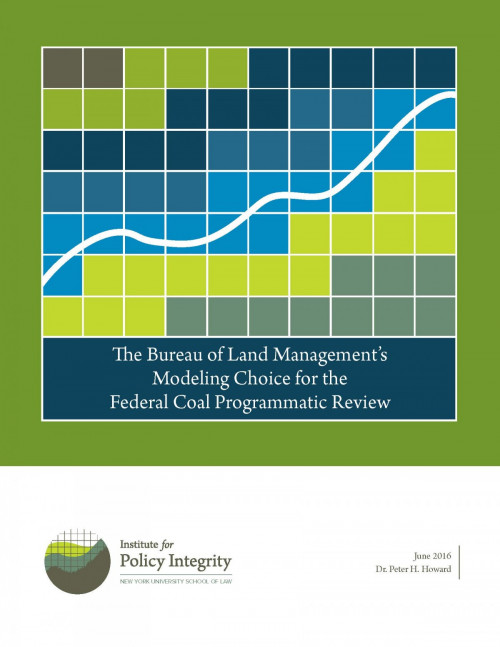
The Bureau of Land Management’s Modeling Choice for the Federal Coal Programmatic Review
There are multiple power sector models available to the Department of Interior (DOI)’s Bureau of Land Management (BLM) for analyzing the effect of current and alternative coal regulations and leasing policies during preparation of its programmatic environmental impact statement (PEIS). This document lays out model selection criteria to assist BLM in weighing the benefits and costs of these available models, and offers recommendations for model selection, highlighting the tradeoff between model complexity and transparency.
-
Handbook of Regulatory Impact Assessment
Jason Schwartz, legal director at the Institute for Policy Integrity, authored a chapter in the new Handbook of Regulatory Impact Assessment. Schwartz’s chapter explores the varied applications and approaches to cost-benefit analysis in the context of regulatory impact assessment.
-
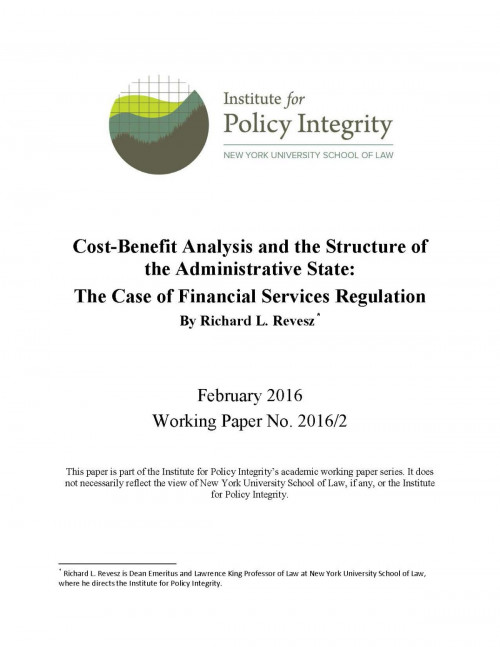
Cost-Benefit Analysis and the Structure of the Administrative State
The Case of Financial Services
The viability and desirability of conducting cost-benefit analysis of financial regulation is a subject of intense academic debate. Opponents claim that such analysis is feasible for environmental regulation but not for financial regulation because of the difference in the benefits that require monetization in the respective areas. This article, which will be published in a forthcoming edition of the Yale Journal on Regulation, argues that the recent debate misses an important part of the problem. In large part, cost-benefit analysis of financial regulation cannot currently be performed successfully because of institutional shortcomings, not analytical difficulties. Compared to Executive Branch agencies, independent agencies, like the major financial regulatory agencies, lack the capacity to do cost-benefit analyses of acceptable quality. Fortunately, there are good Executive Branch models that could be exported to the financial regulatory agencies.
-
Revesz Named One of Most Influential Legal Educators
The National Jurist has named Richard Revesz to its list of the 25 “Most Influential People in Legal Education.”
Viewing recent projects in Government Transparency

